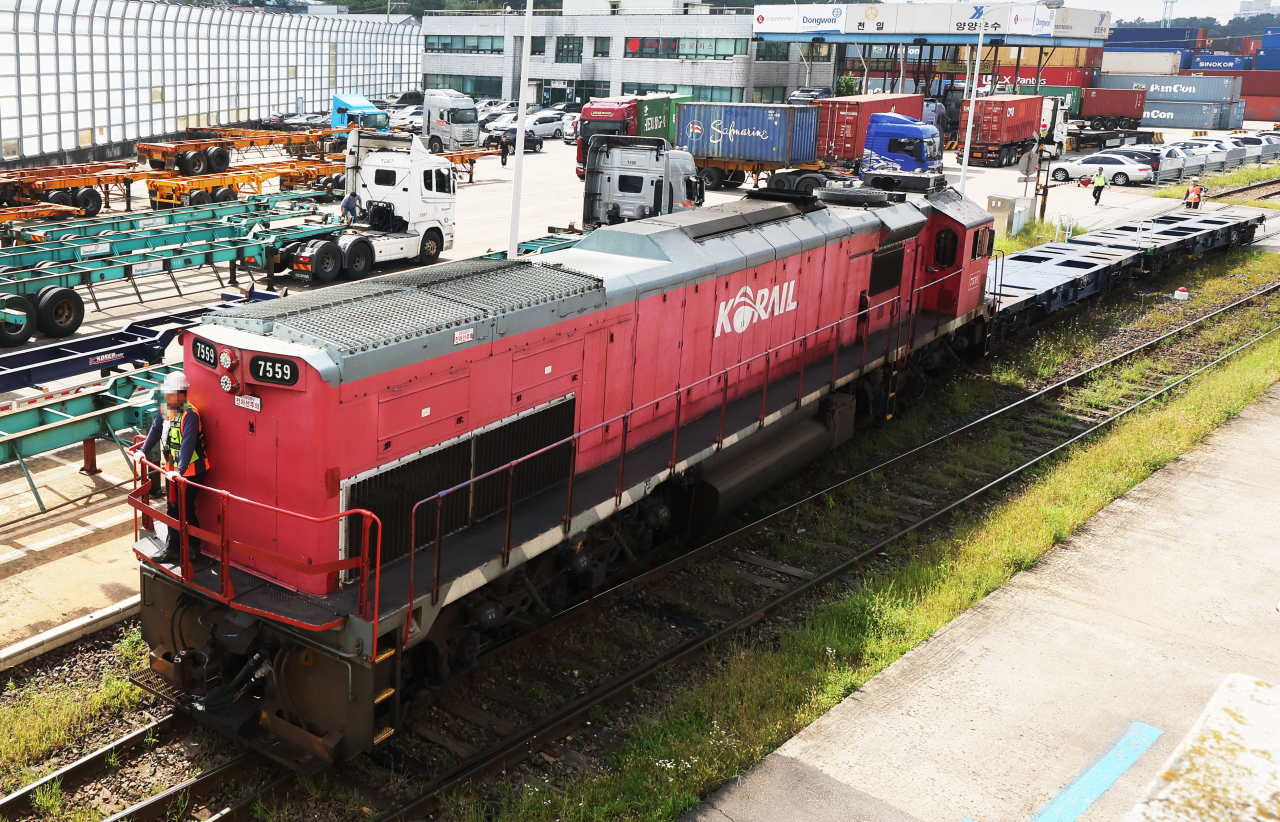 |
A freight train departs from the Uiwang Inland Container Depot in Gyeonggi Province on Monday morning, after the four-day railroad strike came to an end as of 9 a.m. (Yonhap) |
The Korean Railroad Workers' Union ended its four-day general strike Monday morning, but announced the possibility of a second general strike without specifying when.
“The second general strike plan has been set internally, but we will decide whether or not to go on a second strike and the exact schedule based on the Land Ministry's response,” Baek Nam-hee, the media communication chief of the railway union, said to The Korea Herald.
“There are many concerns regarding the timing (of the second strike) because of the Chuseok holiday, but there would not have been a strike if the Land Ministry had not unilaterally reduced the SRT linking Suseo and Busan in the first place,” said Baek, criticizing the ministry for not actively communicating with the union.
The union went on a strike on Thursday calling for the full implementation of a four-group, two-shift schedule and the expansion of public railroad services. The four-group, two-shift schedule, which will free workers from working a night shift for two nights straight and guarantee more days off, has been running on a trial basis for four years, and the union is demanding a proper establishment of the system.
The demand for an expansion of public railroad services includes expanding KTX services to include a route between Busan Station and Suseo Station in Seoul to resolve passenger inconvenience; to decrease the fare gap between the KTX and SRT; and the integration of the Korea Railroad Corp. and SR, which are the companies of KTX and SRT, respectively.
The railroad union stressed that the Land Ministry’s arbitrary decision on Sept. 1 to cut down the number of SRT trains connecting Suseo Station and Busan Station reduced up to 4,920 seats a day, causing inconvenience to passengers. Introducing the KTX trains linking Suseo and Busan is essential to meet passengers’ needs, the union said in its statement Sunday.
The reason why the Ministry of Land, Infrastructure and Transport reduced the SRT linking Suseo Station and Busan Station is to put the SRT trains on three additional routes -- from Suseo Station to Jinju in South Gyeongsang Province, to Pohang in North Gyeongsang Province, and to Yeosu EXPO Station in South Jeolla Province. Only the KTX trains were in operation on these three routes, and the Land Ministry’s plan was to introduce competition between train services by making the SRT another option. On the other hand, the railway union has insisted on the integration of Korail and SR to put railways in the hands of the public.
Meanwhile, during the meeting with the Land Ministry on Sunday, Korail President Han Moon-hee said the damage caused by the strike is estimated to be about 7.5 billion won ($5.6 million). From Thursday to Sunday, logistics and freight train operations decreased from an average of 117 times a day to 38 times a day, and the transported volume decreased from an average of 60,000 tons to 20,000 tons a day.







